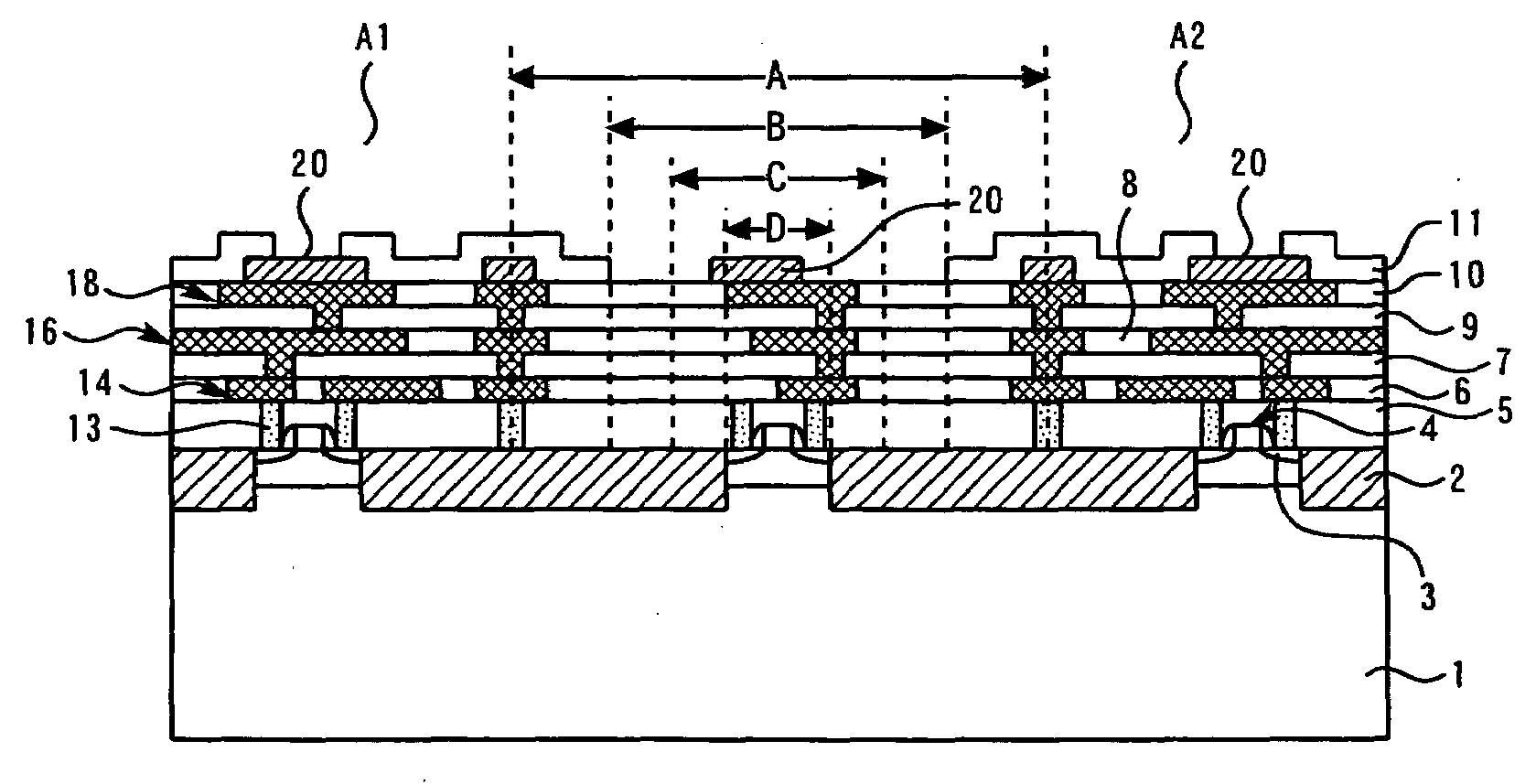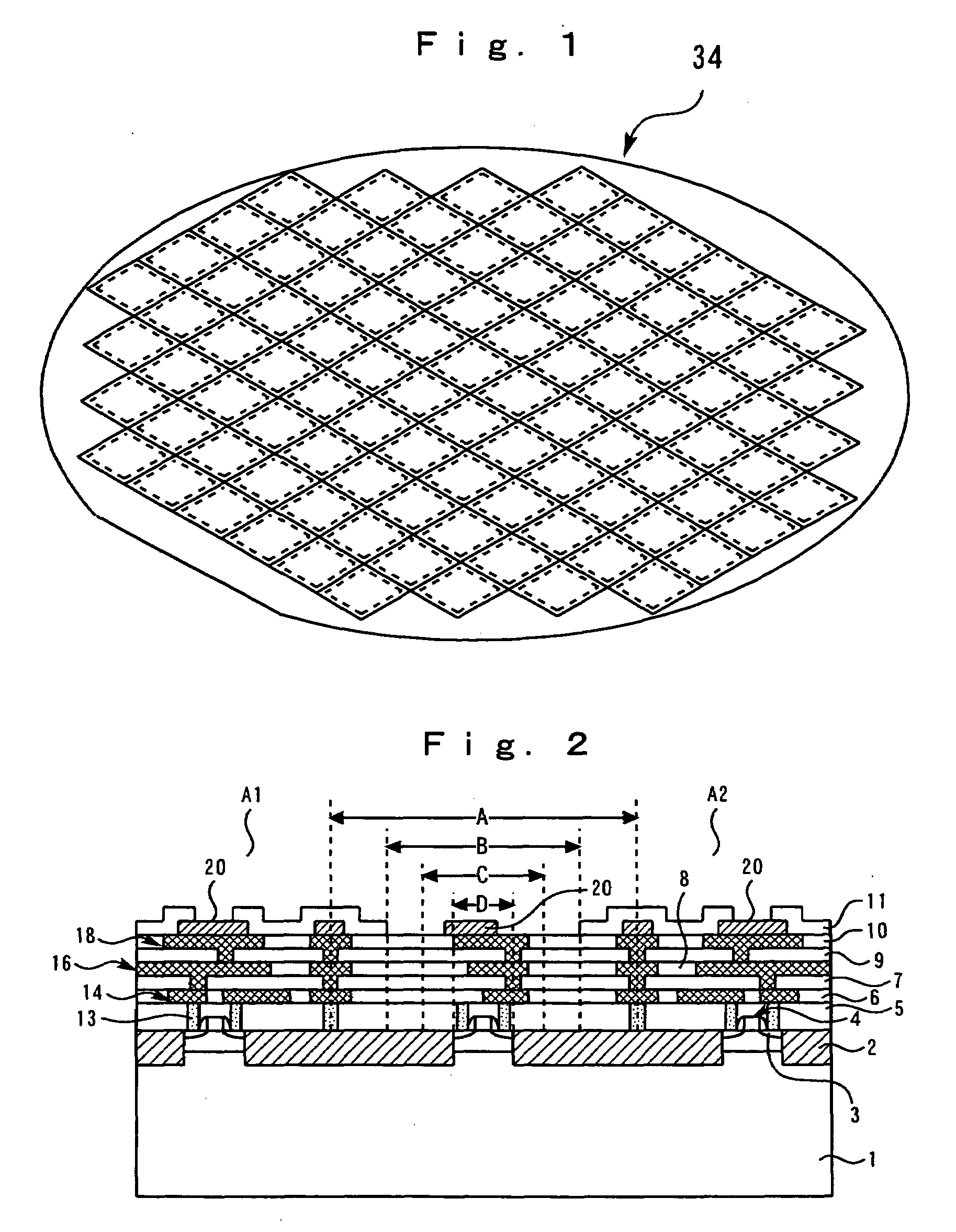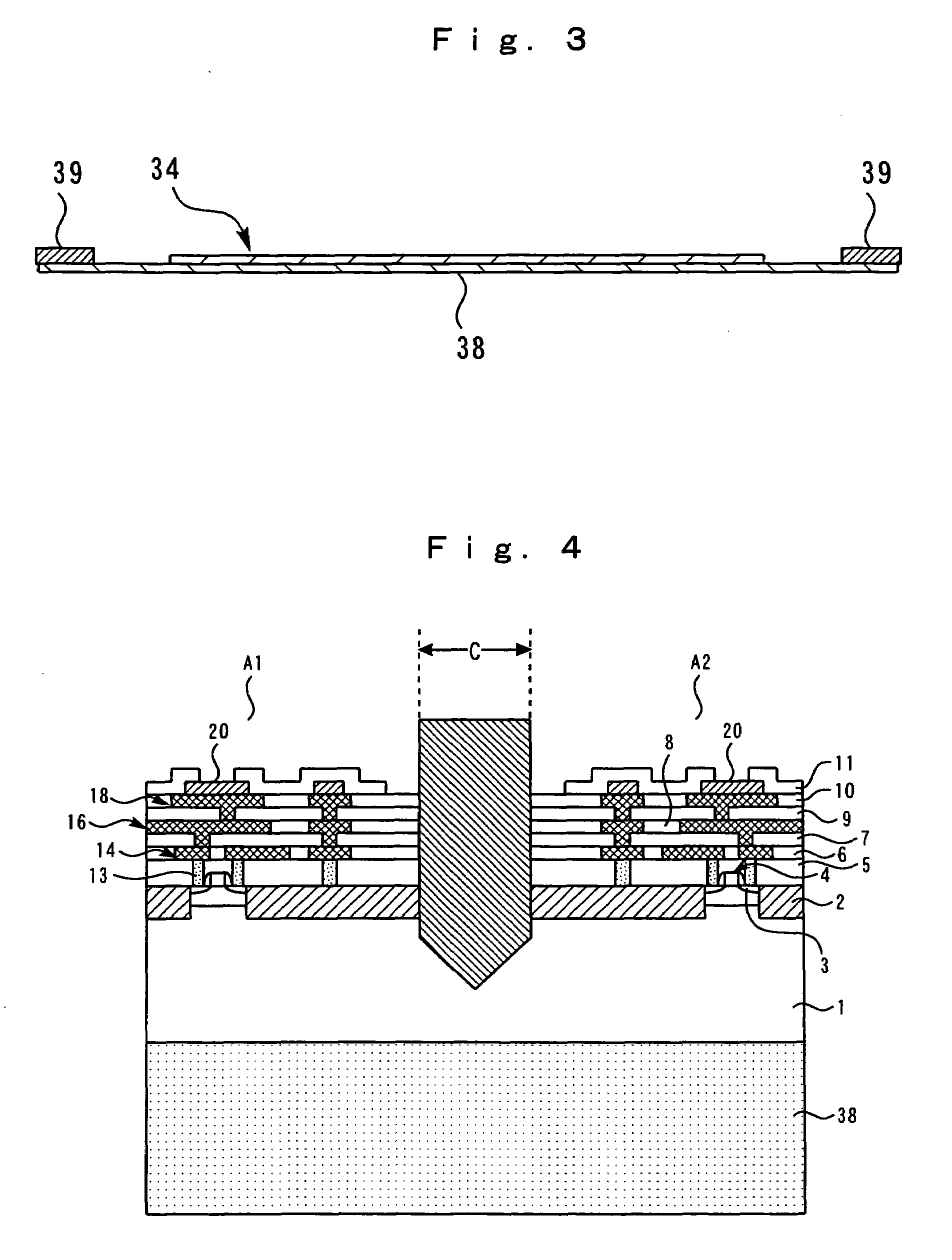Manufacturing method of semiconductor device
a manufacturing method and semiconductor technology, applied in the field of manufacturing methods of semiconductor devices, can solve the problems of small damage given to a wafer, large consumption of blades, low durability, etc., and achieve the effects of preventing blinding of blades, preventing deterioration of cutting surface quality, and suppressing the reduction of cutting capacity
- Summary
- Abstract
- Description
- Claims
- Application Information
AI Technical Summary
Benefits of technology
Problems solved by technology
Method used
Image
Examples
embodiment 1
[0047]The manufacturing method of the semiconductor device of the present invention is explained. Here, the example which cuts the wafer in which elements, such as a transistor, the wiring, and the insulating film were formed on the silicon substrate, in the shape of a semiconductor chip by dicing is explained.
[0048]The perspective view of the wafer after forming elements, such as a transistor, a wiring, and an insulating film on a silicon substrate is shown in FIG. 1, and a cross-sectional view is shown in FIG. 2. Back surface polish of the thickness of a wafer is done to the thickness of about 250 μm by the back-grinding step on the back surface of a wafer which is not illustrated. As the method of back surface polish, a mechanical means, a chemical means, the case where a mechanical means and a chemical means are used together, etc. can choose suitably. Device regions A1 and A2 are formed on silicon substrate 1, and these regions adjoin. Between these regions, dicing line A which...
embodiment 2
[0091]This embodiment explains the step until it performs the assembly of a semiconductor chip and results in shipment after performing the dicing step shown by Embodiment 1.
[0092]The process flow comprising the dicing step shown by Embodiment 1, and steps until it ships after that is shown in FIG. 25. First, wafer 34 in which elements, such as a transistor, were formed on the silicon substrate is prepared as described in FIG. 1 (S1). Next, like the description to FIG. 3, dicing tape 38 is stuck on the back surface of wafer 34, and it mounts (S2). Next, dicing is performed by the method shown by Embodiment 1 (S3). Next, ultraviolet rays are irradiated in order to reduce the adhesive power of dicing tape 38 (S4). Hereby, peeling of dicing tape 38 in a later step can be made easy. Next, like the description to FIG. 26, dicing tape 38 is peeled and semiconductor chip 41 cut per chip is picked up (S5).
[0093]In order to assemble semiconductor chip 41 picked up by above S5, like a descrip...
PUM
 Login to View More
Login to View More Abstract
Description
Claims
Application Information
 Login to View More
Login to View More - R&D
- Intellectual Property
- Life Sciences
- Materials
- Tech Scout
- Unparalleled Data Quality
- Higher Quality Content
- 60% Fewer Hallucinations
Browse by: Latest US Patents, China's latest patents, Technical Efficacy Thesaurus, Application Domain, Technology Topic, Popular Technical Reports.
© 2025 PatSnap. All rights reserved.Legal|Privacy policy|Modern Slavery Act Transparency Statement|Sitemap|About US| Contact US: help@patsnap.com



